A long time ago, I realized how easy it is to become homeless. I had a good life, a comfortable home that we were renting and a new baby. And then, my husband, who was our only source of income, died suddenly. The small savings we had were quickly depleted. The calls I used to get from friends about getting together for lunch were replaced by calls from nasty bill collectors. I could not afford the rent any longer; I didn’t have any money, so I had to move. But where?
I was lucky. I had extended family to help me get back on my feet. I moved in with them and I got a job. I found a place to live and some of the stability I lost started to take shape again. But I never forgot how close I was to being homeless.
Many people are not that lucky and unfortunately, they are often children, the elderly and one of our most treasured resources, our Veterans, who find themselves needing help.
According to the National Alliance to End Homelessness, North Carolina ranks as the 18th worst state in the United States for homelessness, with approximately 1 in every 1,250 people experiencing the problem. One of their studies done in 2023, said, in part, that “all sub-populations of people experiencing homelessness increased, including veterans, families with children, unaccompanied youth, and Hispanic or Latinx people.”
Speaking with Sally Learned, Executive Director of Brunswick Partnership for Housing, I found that COVID and the changes it made to working in an office environment, were a big part of the problem. She said, “You have to remember, COVID changed the way we worked. You had high wealth people and work from home people who could perform their jobs anywhere, so they flocked to coastal communities. In 2020 and 2021, you saw housing prices double and triple. The housing market lost a lot of affordable units. This market doesn’t have to accept Section 8 assistance anymore and that hurt a lot of people. Before all of this started to change, you could rent a one-bedroom apartment in Brunswick County for around $600 to $800 per month. Now, those same places are renting for $1,600 a month or more. In the past four years, Brunswick County has experienced growth that would normally take seven years to achieve.”
On January 5, 2024, The Carolinian Newspaper reported, “During the 2020-2021 school year, over a million students in public schools were homeless, making up over 2% of the total public-school population, with North Carolina at 1.5%. Considering an average classroom size of approximately twenty students, at least one student in every three classrooms lacks adequate housing at night. To afford rent for a two-bedroom rental on a national scale, a single person working full-time must earn almost $26 per hour.”
Sally also talked about Brunswick County residents who saw their working hours cut which meant they had less money for housing. She said, “Look at teachers, first responders, restaurant workers, young people who are working in entry-level jobs; they were working less hours struggling to keep a roof over their heads. Some faced eviction through no fault of their own. And, when you do get back on your feet, it’s hard to find a place to live with bad credit and an eviction on your record.”
Sally explained, “People often think that ‘homeless’ people have no money, no job, no hope. And, while it’s true that some factors that lead to becoming homeless include job loss, illness or addiction, escaping domestic violence, or an overall increase in pricing for basic needs, the truth is that many people who are homeless do have jobs; they just can’t afford rent for the most basic apartment or housing units. Sometimes that leads to families with children living in sheds; families living in broken down campers; or two or more families sharing a one-bedroom apartment.”
The unfortunate truth is that Brunswick County has no emergency shelters and no plans to build any. She explained, “Families with children get priority on placements we can make, and then the elderly. We can give them a voucher for a night or two in a motel, but that’s about all. There are families in Brunswick County that live in a tent in the woods, or they live in a camper with no utilities. These are the ‘unsheltered homeless population.’ I’ve seen elderly people sleeping in their cars, but now they can’t do that anymore; it’s become criminalized. The police will move people parked in business parking lots because it’s considered trespassing. And where do they end up? In vacant lots or worse in areas that aren’t safe to be in.”
The “unsheltered,” are those that are living in places that weren’t meant for housing—places like cars, abandoned buildings and along the highway. It is for this reason that tracking the number of homeless people in Brunswick County is difficult. The Brunswick County Homeless Coalition said, “As of May 2024, Brunswick County, North Carolina has an average of nineteen clients experiencing homelessness each month, up from 8–9 clients per month in 2022 and 2023. However, some say the actual number of homeless people in the county is much higher, with estimates of over 500 people experiencing homelessness on any given night. This is because many people who are technically homeless, such as those who couch surf or sleep in their cars, are difficult to track.”
While the homeless problem in Brunswick County affects many people, Sally said of our homeless Veteran population, “They have a robust system through the VA where they can get housing vouchers, but things like PTSD and behavioral health issues sometimes leads to criminal behavior and activities that makes them ineligible for housing. They have to rely on a network of other veterans who are doing what they can to help.”
Leland Veterans of Foreign Wars Jr. Vice Commander, Chris Pilloton, agreed and said, “Our Post partners with the Good Shepherd Center, part of the Sgt. Eugene Ashley Memorial Center on Martin Street in Wilmington. It’s a short-term transitional housing center in New Hanover County that can accommodate up to sixteen homeless Veterans. When a Veteran is placed there, they usually stay around 30 to 60 days and during that time, they gain skills that can assist them in transitioning to permanent housing. While Veterans are at the Center, they get meals, clothing, laundry supplies and basic toiletries. They also get transportation to medical appointments and a lot of peer support.”
Post Commander, Gerald Decker said, “Post 12196 sponsored a Basic Necessities Drive for homeless veterans in July. We collected shirts, pants, underwear, socks, jackets, and pajamas, and products like toothbrushes, toothpaste, soap, shampoo, deodorant, feminine hygiene products and wet wipes. This event was very successful but still it amounts to a “Band-aid” to a much larger problem.
Commander Decker also stated that Post 12196 is implementing a new Creative Arts Program to try to address the issues of veterans and first responders who are dealing with issues from their service to our nation and our community.
Sally showed me that the face of the homeless in Brunswick County is us. It almost happened to me, and it can happen to you. In an effort to raise awareness of what being homeless could feel like, the Brunswick Partnership for Housing is planning a 15-hour countywide event called, “Sleep Out Brunswick.” The main event starts on Friday, October 25th at 4:00 p.m. and runs through Saturday, October 26th at 10:00 a.m. and will be held at the Southport Cape Fear Regional Jetport. Those who sign up will sleep out (safely) in tents, cardboard boxes, or cars. This event is sponsored by the Brunswick Partnership for Housing.
Said Sally, “This is a guided experience that will take participants through what it’s like to be homeless and in poverty. We hope to raise money through donations that will help us continue to provide services and transitional housing. If the October dates don’t work for you, participants can choose their own date, between September 25th and October 25th and can sleep in their driveways, backyard, or church parking lot.”
You can sign up to be part of this initiative starting on Monday, August 5th, by going to their website, www.brunswickpartnership.org, by going to the Brunswick Partnership for Housing located at 250 East 11th Street, Southport, or by calling 910 946-1501 if you need more information.
Sally continued, “Homelessness in Brunswick County is real. We’re at a critical point here, and it’s going to take the whole community to turn it around.”
I used to think that Leland could use more restaurants—the kind where you go for a really nice dinner. For years, I complained that going to Target to shop was so far away, why can’t one be built in Leland? And then I learned about the homeless in Brunswick County. If we can build villages of multi-unit apartment complexes and luxury home gated developments, why can’t we build some emergency and/or transitional housing?
Do we have to wait until it happens to you?

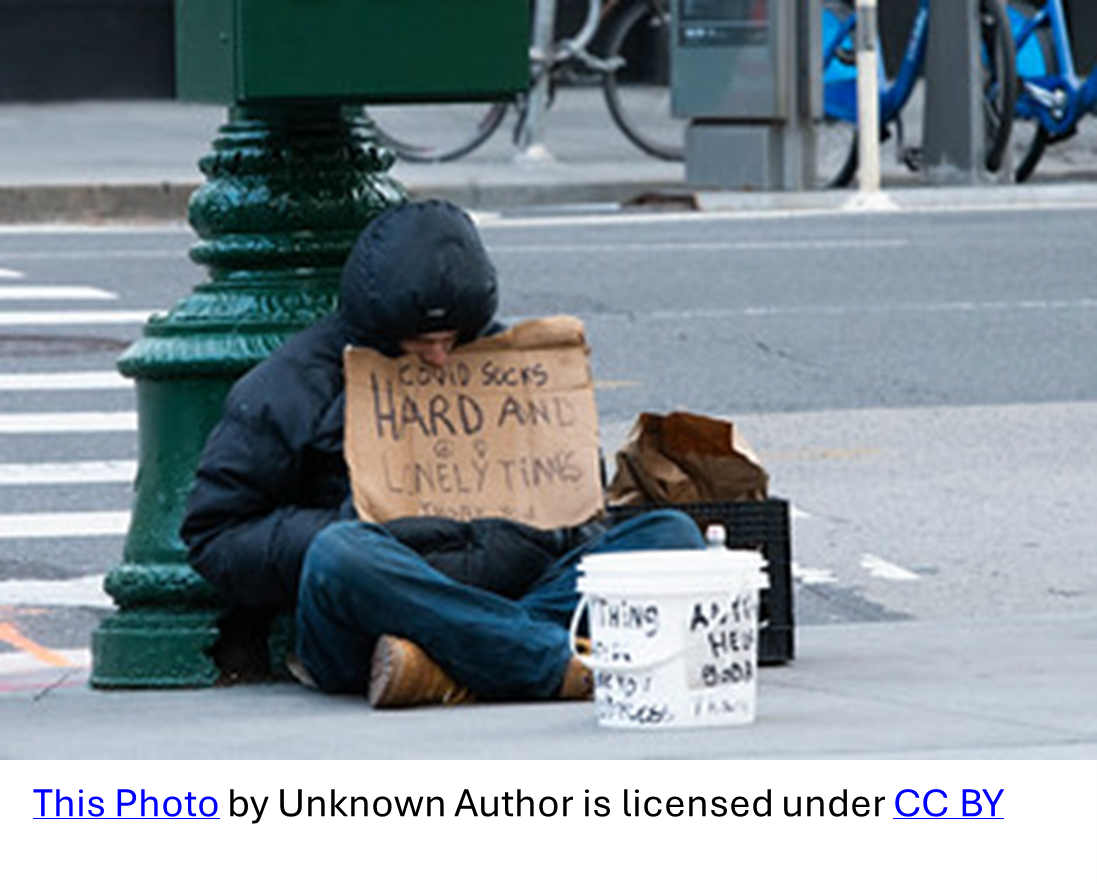

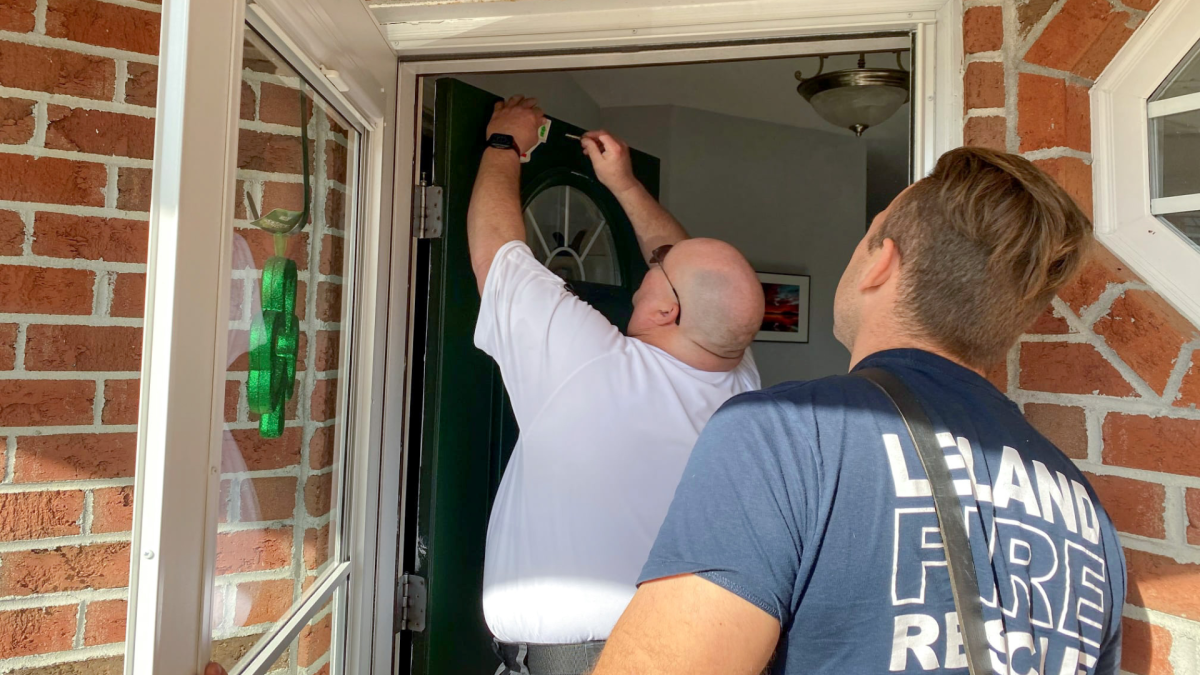


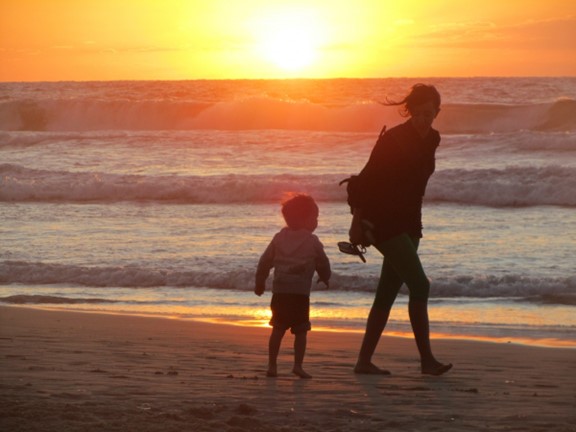







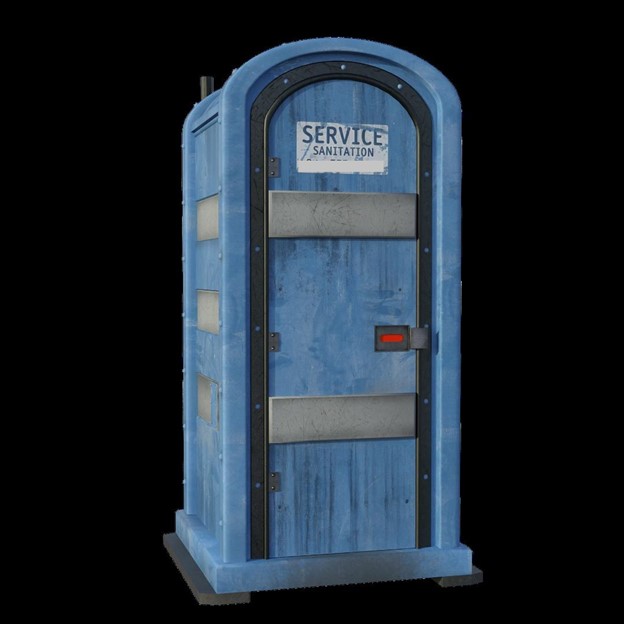
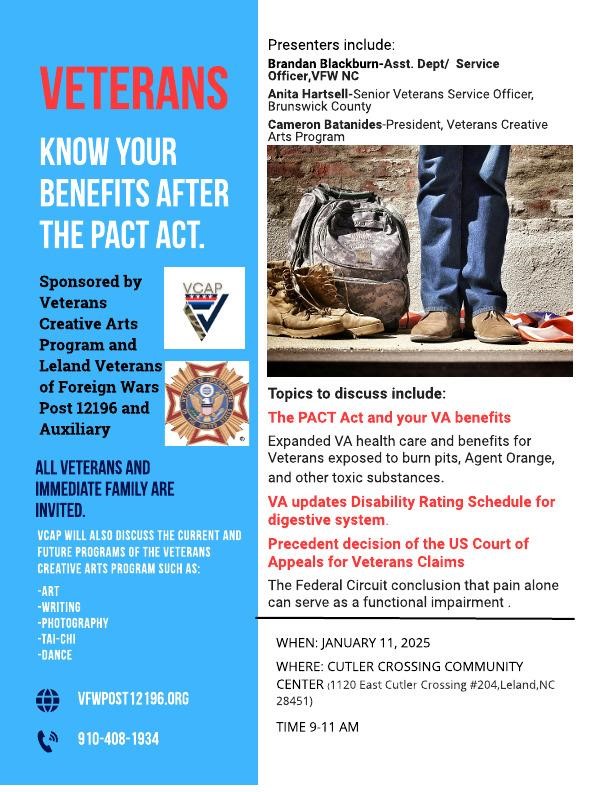
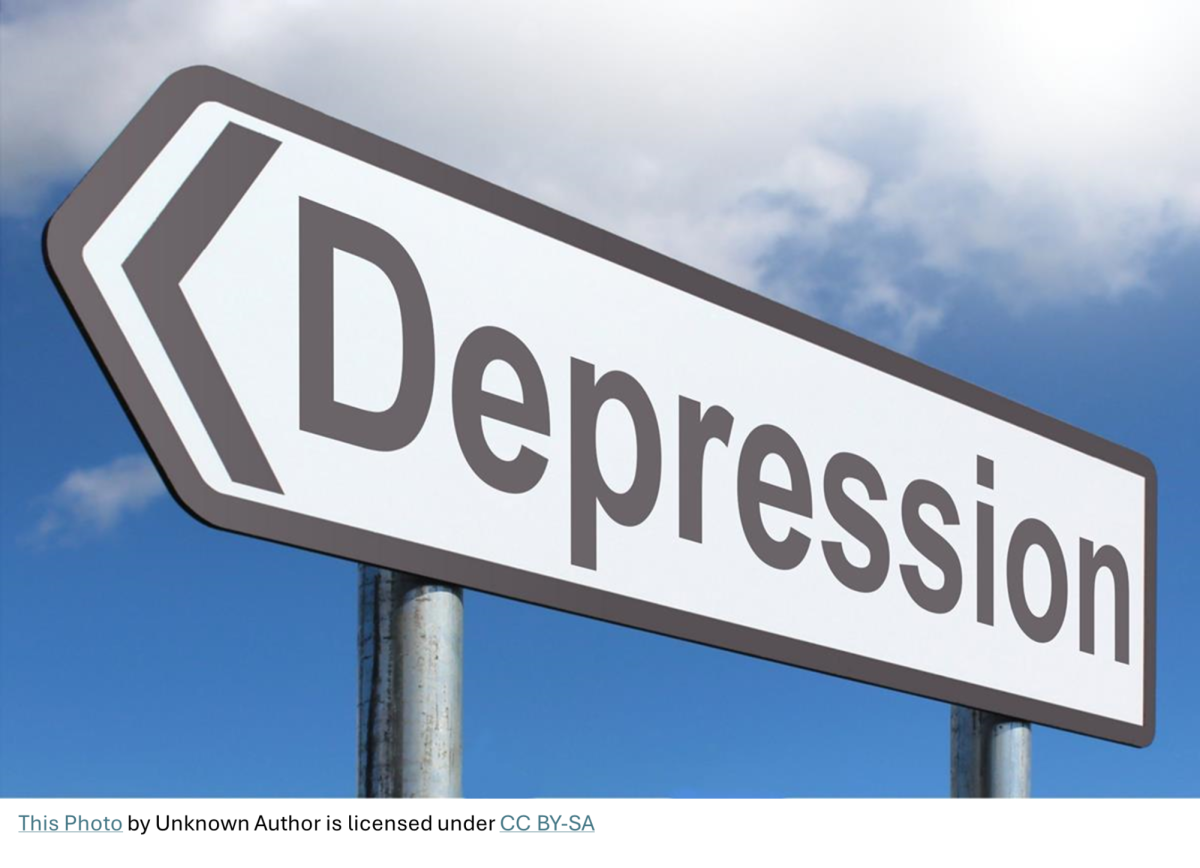


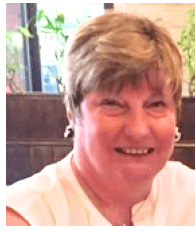
Chuck Bins • Aug 7, 2024 at 4:27 pm
An important story, especially since so many homeless have been pushed out of Wilmington. Brunswick County Streetreach is another organization that is working to help the homeless on this side of the Cape Fear River.
adviser • Oct 8, 2024 at 7:36 pm
Thanks